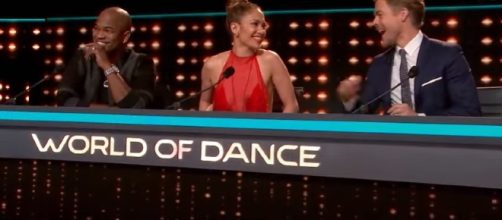The 21st century is thriving on Competition in the real world and on the silver screen. Talent competition shows are extremely popular today and they come in all shapes and sizes. Some welcome a variety of different things, like "America's Got Talent". Others focus on specific skill sets, like "American Idol" and "Food Network Star". The newest competition is all about dance.
NBC's "World Of Dance" aired its first show on Tuesday, May 30th, and made a very powerful statement. Hosted by Jenna Dewan Tatum, with Jennifer Lopez, Derek Hough, and Ne-Yo judging, "World of Dance" sets itself apart from all other talent shows by combining the best elements from classic competitive television with new technology and style.
It's innovative, unique, refreshing entertainment. Why?
Age gaps
One thing that separates "World of Dance" from other similar shows is that it breaks up its competitors by age groups. While "So You Think You Can Dance" kept an age restriction of eighteen years old until just recently, keeping the playing field even but excluding younger talent, NBC's new show welcomes all ages and allows them to compete with others on a similar level. This differentiates it from all-inclusive shows like "America's Got Talent" as well because it does not pit mature competitors against dancers with similar talents but less experience. It is expected that all ages will converge as the competition progresses, but the separation in the qualifiers allows the judges to sort the competitors without having to make difficult and unfair comparisons.
Judging categories
The hardest thing about any competition show is that every single competitor has their own style, so it can become a game of apples versus oranges for the judges. One of the best new things about "World of Dance" is that judges are given five categories to judge each act on. The five categories are Personality, Technicality, Creativity, Choreography, and Presentation; these are criteria that can be applied to any style of dance and any age of performer.
Each dancer or crew is given a score out of 20 in each category, for a total best possible score of 100. This numerical component helps judges more accurately organize the general value of each performance, and also gives dancers a better idea of where they stand in the competition as opposed to just being 'in' or 'out'.
Mentoring
Although the mentoring aspect of the show has yet to be seen by regular audiences, it appears that dancers will be assisted throughout the competition to improve their skills and chances of winning. One of the favorite unique things brought by "The Voice", mentoring adds a whole new level to the fun aspect of the competition. It allows competitors to make connections with professionals and learn things that they can implement right away. It also gives the judges and host a chance to step into a new challenge. Mentoring also helps lighten the mood for audiences; it's bound to make for the most fun footage.


